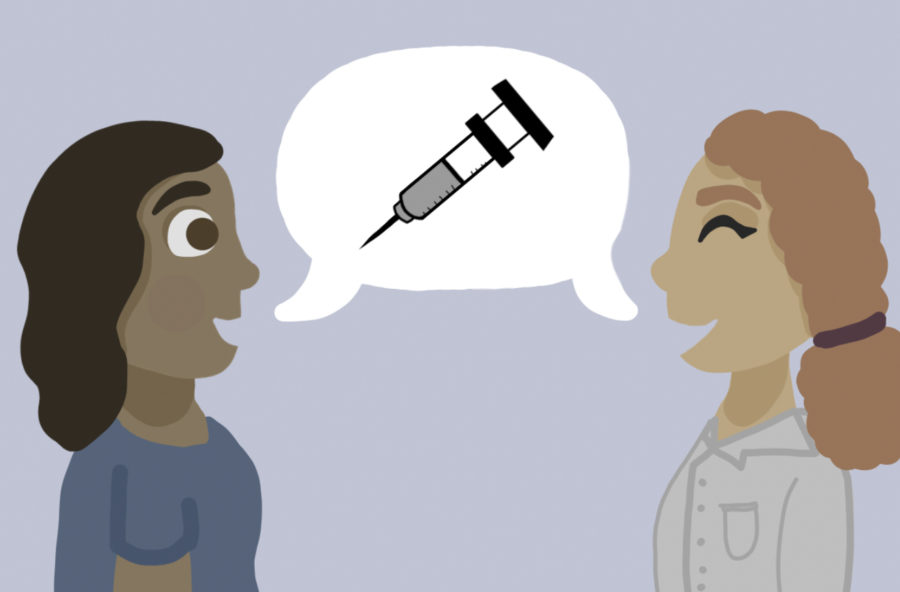Good doctor-patient relationships increase vaccination rates during pandemics
People are sometimes hesitant about getting vaccinated because of misinformation or historical reasons
During a pandemic, there is a lot of uncertainty. This leads to a lack of trust in a vaccine because people may have questions about how the vaccine was created or think it might be dangerous.
April 8, 2021
People who talk with their doctors during a pandemic are more likely to get vaccinated, according to researchers from WSU and the University of Wisconsin-Madison.
Researchers analyzed people’s responses to the H1N1 virus, which causes swine flu, through data that measured vaccination behaviors after the 2009 pandemic was over, said Porismita Borah, lead author on the study and associate professor for the Edward R. Murrow College of Communication.
The data they looked at was from a large data set that measured a variety of health behaviors, including smoking and alcohol use, she said. They used the data set because it measured the number of people receiving the vaccine and not just those with the intention of getting the vaccine.
Researchers found that when patients have a positive relationship with their doctors, they tend to have positive attitudes toward vaccination, which in turn, leads to people choosing to get vaccinated, Borah said.
During a pandemic, there is a lot of uncertainty, she said. This leads to a lack of immediate trust in a vaccine as people may have questions about how the vaccine was created or think it might be dangerous. This is where the role of the doctor becomes important.
“The doctor’s office can play an important role by giving that information, which helps them make an informed decision,” Borah said.
Patients who talked freely with their doctors were more likely to get the vaccine. However, she said this relationship is complicated because doctors cannot ethically force patients to get a vaccine and instead can only inform patients about vaccines.
Although the H1N1 pandemic occurred about a decade ago, the world is in the middle of another global pandemic. Borah said vaccine adoption is crucial to ending the COVID-19 pandemic.
“Because the more people get vaccinated, the more safe the community will be, the more safe their families are going to be,” she said.
Even though the data set only pertained to the H1N1 pandemic, the research is relevant to create recommendations for getting people to adopt the COVID-19 vaccine, Borah said. Healthcare providers and organizations should give people information to keep patients informed about the vaccine and let them know why it is important to be vaccinated.
Borah said there are many reasons people may choose to not get vaccinated.
She said reasons people may be hesitant to get vaccinated include misinformation, the novelty of a virus and historical factors. In the past, vaccines have been forced on people, and that may make them more hesitant to take vaccines today.
This is why people need information from a trusted provider about vaccines, Borah said.
“That is why the role of doctors comes into play or the role of other organizations like [the Centers for Disease Control and Prevention], or [the World Health Organization], or local government and local health organizations, to give that information that is needed for people to [make] an informed decision and make sense of what it means to be vaccinated,” Borah said.
She said vaccines are safe, and doctors need to communicate this information to their patients.
Borah said she is excited the data came out at such a relevant time to help combat the COVID-19 pandemic. As more people get vaccinated against COVID-19, people will slowly be able to put much of the damage from COVID-19 behind them.










